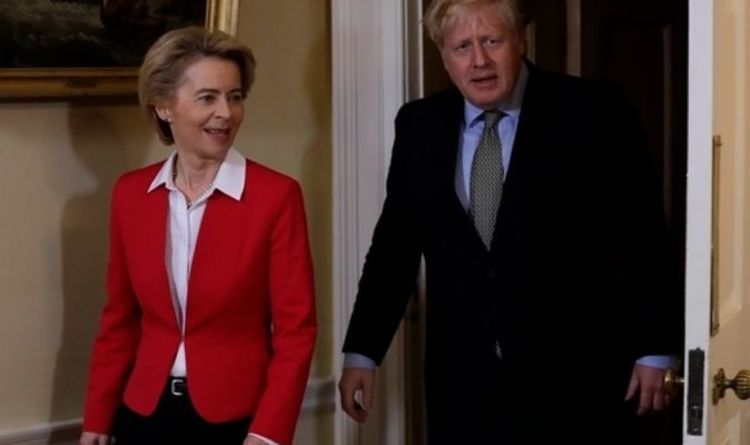The position announced by the European Commission prevents scallops, clams, cockles, oysters and mussels known as bivalve molluscs from being exported to the bloc unless they are ready for human consumption after being purified. But with a separate threat of court proceedings from 20 shellfish firms against the UK over the post-Brexit arrangements with the EU, ministers are considering their options.
Last night, a senior UK Government source told Express.co.uk: “The action brought by the shellfish firms is disappointing.
“But we ourselves are considering a variety of options to take action against the bloc, all options remain on the table.”
Until the end of the transition period, producers were able to export unpurified unshell products such as muscles to the continent which would then be purified after arriving at their destination.
But since January 1st, firms have only been able to send pre-purified shellfish to the continent.
This is because the EU classed the Britains waters as “class B” instead of the cleanest waters – categorised as “class A” – putting the restrictions in place.
The introduction of new checks and paperwork since the end of the Brexit transition period on December 31 has also caused disruption to exports of fresh fish and seafood to the EU to the frustration and anger of fishing organisations and producers.
Andrew Jackson LLP is representing the 20 fishing firms in the separate potential legal action against the UK government and is currently examining a legal opinion.
Partner Andrew Oliver, said: “We are taking a leading counsel’s opinion as to the government’s actions in regard to the EU trade agreement and the assurances given by the government to make live shellfish exports.
READ MORE: Labour’s nightmare: Starmer crisis as members demand UK rejoins EU
A Department of Food, Environment and Rural Affairs spokesman, said “The legislation was clear that the export of live bivalve molluscs from class B waters for purification could continue after the transition period.
“Our correspondence with the commission confirmed this.
“The commission have now amended their import rules, without scientific or technical justification.
“They have changed the law to justify their position in blocking the trade, causing impacts for businesses on both sides.”




